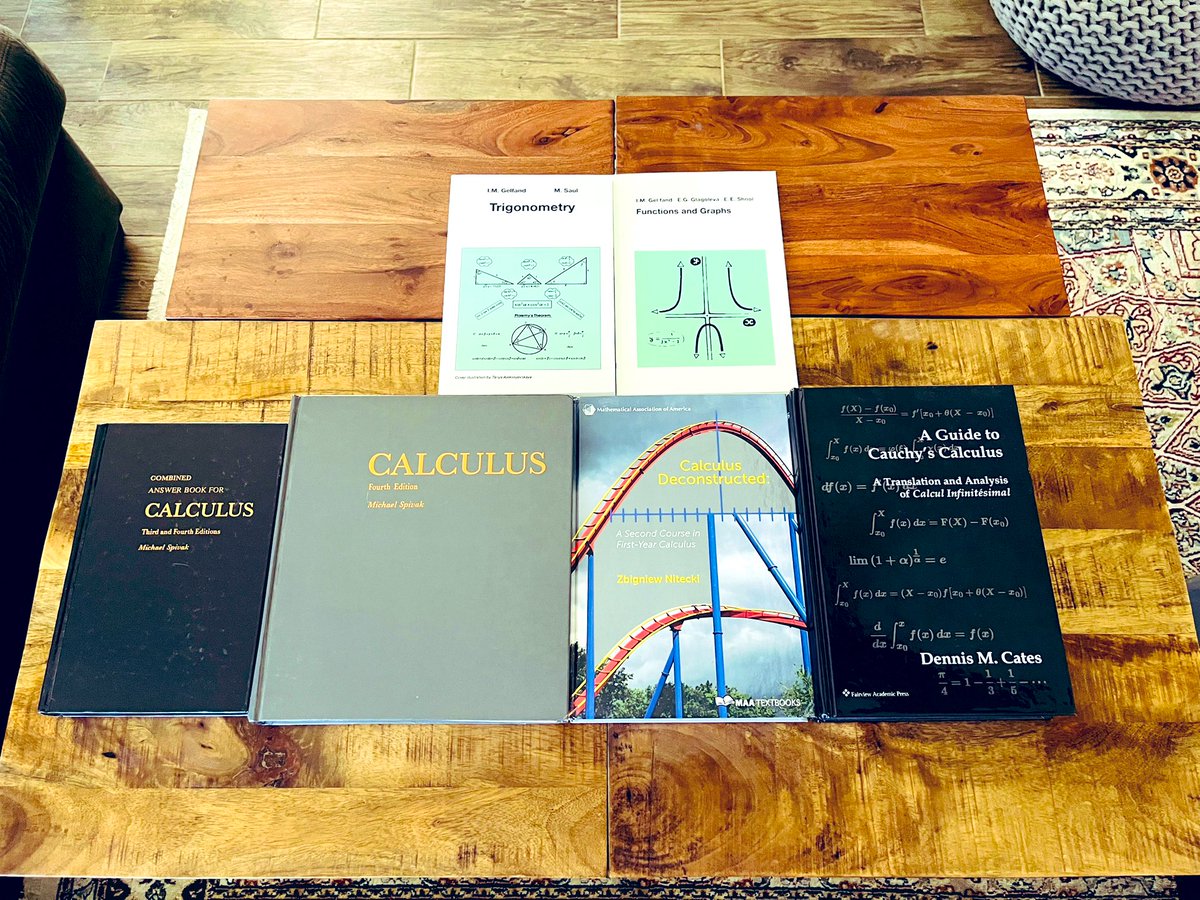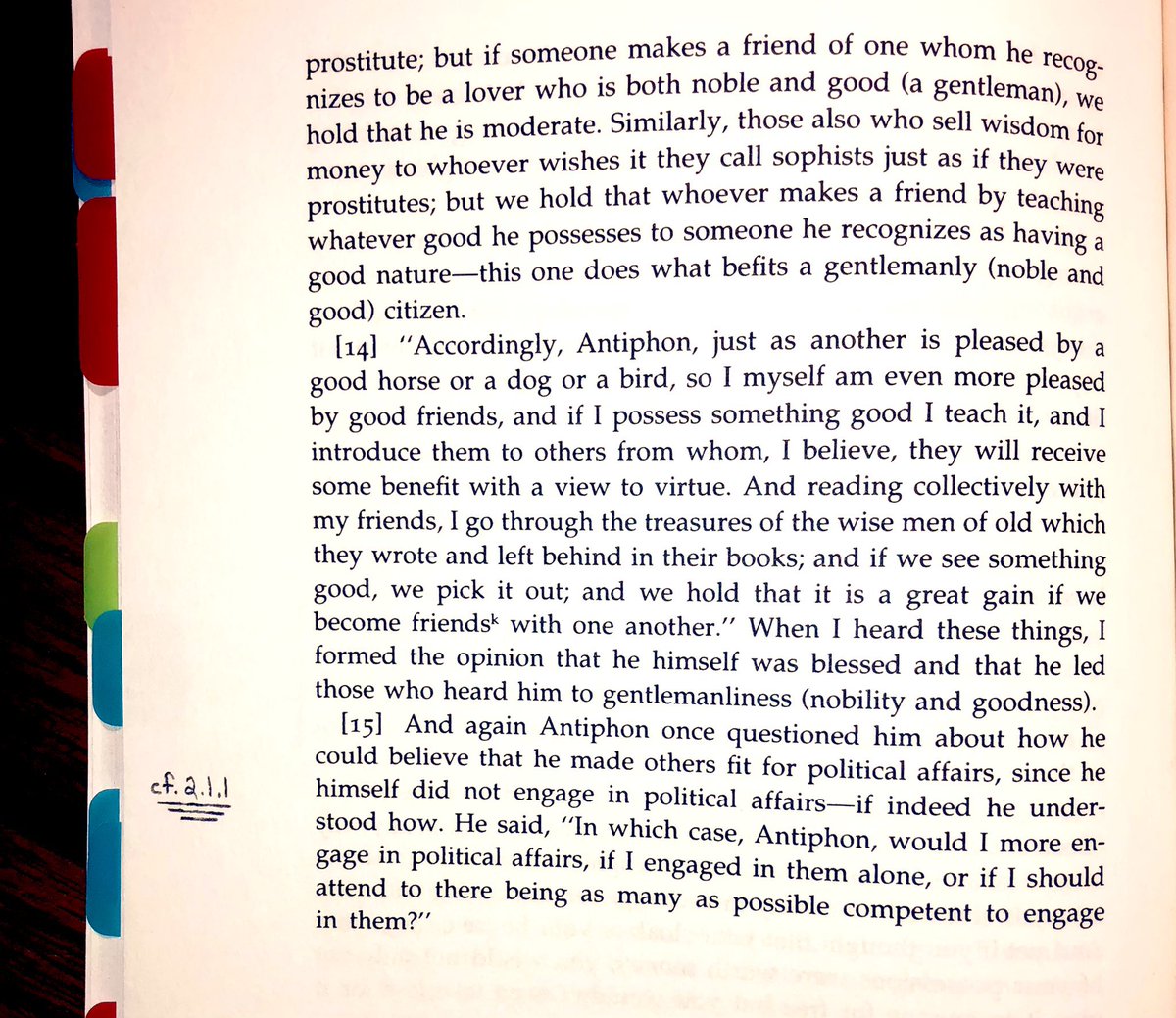
I teach the Great Books of our tradition ||Excellence in education: Intro through PhD level || SubStack @AthensCorner
5 subscribers
How to get URL link on X (Twitter) App


https://twitter.com/athens_stranger/status/1939350814226776447


 The prerequisite:
The prerequisite:


https://twitter.com/athens_stranger/status/1802419193926799503A second discussion, emphasizing its effects upon higher Catholic education:
https://twitter.com/athens_stranger/status/1817608404409683996


 First, the classics. These are the intro undergrad texts often used at MIT, CalTech, Princeton, etc. They’re very difficult for self-study, but they’re crucial for helping you keep track of where what you’re learning stands in relation to the what the best are learning:
First, the classics. These are the intro undergrad texts often used at MIT, CalTech, Princeton, etc. They’re very difficult for self-study, but they’re crucial for helping you keep track of where what you’re learning stands in relation to the what the best are learning:




https://twitter.com/bidenhandler/status/1807831379847401550…However, because I did at least take a few seminars on the topic at the PhD level from the psychology dept in supplementing my philosophy coursework, I can share some additions to his thread above by way of a bibliography.


 …which places responsibility upon the individual, and not some abstract social agency. Sentimental humanitarianism obviously does not speak the language of duty, but of indulgence. The belief that obligations are tyrannies, and that desires and not rewards should be…
…which places responsibility upon the individual, and not some abstract social agency. Sentimental humanitarianism obviously does not speak the language of duty, but of indulgence. The belief that obligations are tyrannies, and that desires and not rewards should be…
https://twitter.com/athens_stranger/status/1797223316388020560…Heidegger’s two dissertations are as follows:
https://twitter.com/athens_stranger/status/1798896152542355817


 Blaming Christianity, MartyMade shows he’s merely derivative of the Trojan-horse propaganda from the early Modern liberal founders of classical liberalism who deliberately sought to make Christianity radically tolerant by subverting it. Here’s my initial space with notes:
Blaming Christianity, MartyMade shows he’s merely derivative of the Trojan-horse propaganda from the early Modern liberal founders of classical liberalism who deliberately sought to make Christianity radically tolerant by subverting it. Here’s my initial space with notes:https://twitter.com/Athens_Stranger/status/1708940648932651368

https://twitter.com/athens_stranger/status/1755291499003285774
 After having read any particular play or grouping of them, you will then want to see what a few of the best readers of Shakespeare have had to say about them.
After having read any particular play or grouping of them, you will then want to see what a few of the best readers of Shakespeare have had to say about them. 

 … people want to keep all their options open for as long as possible. To be so radically risk-averse as most people are, they see this as a great boon. However, true love, true friendship, true family are all absolutely rooted in accepting and *embracing* great risks…
… people want to keep all their options open for as long as possible. To be so radically risk-averse as most people are, they see this as a great boon. However, true love, true friendship, true family are all absolutely rooted in accepting and *embracing* great risks…
https://twitter.com/athens_stranger/status/1709571464553476413…speak of friendship so casually that true friendship has become like love had become for La Rochefoucauld: true love is akin to ghosts, everyone speaks of it but few have ever seen it (Maxims 76). Accordingly, in order to better know ourselves it’s worth surveying…
